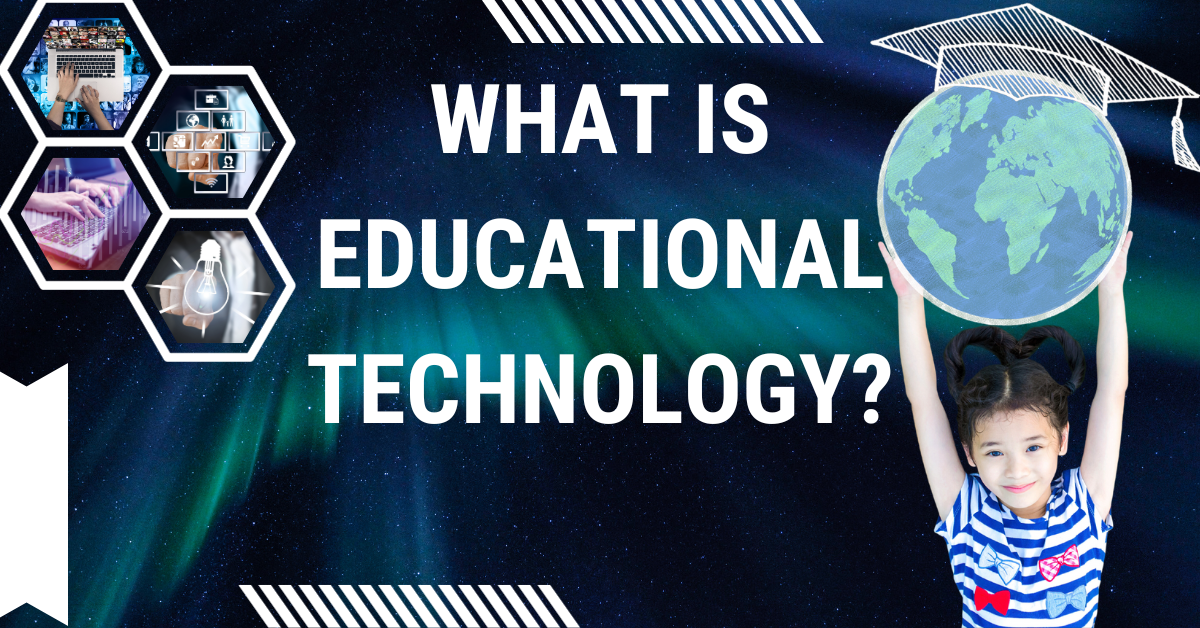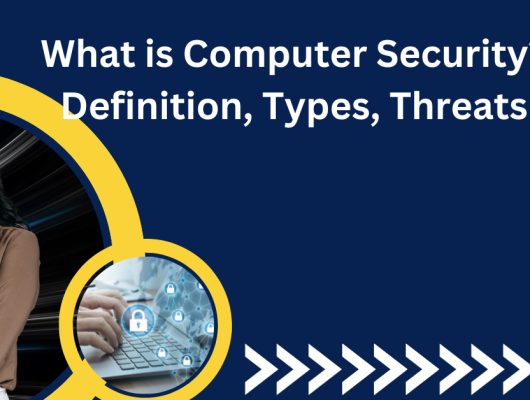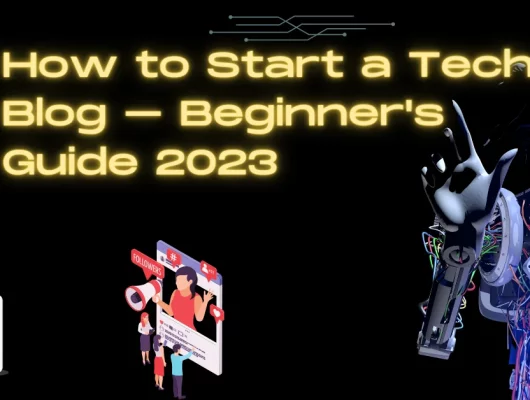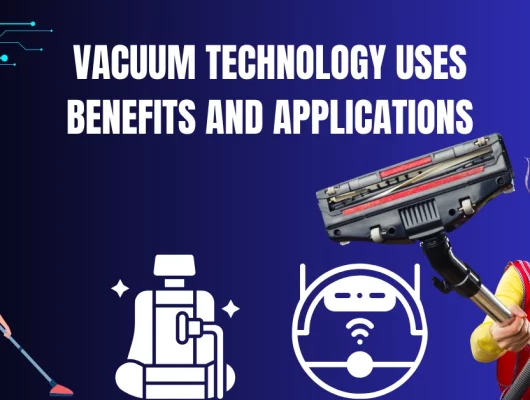Introduction
Educational Technology (EdTech) utilizes digital tools to enhance learning, with examples such as online courses and virtual classrooms. Information Technology (IT) encompasses various types like hardware. Technology is becoming a more important factor in how we teach and learn in the quickly changing educational scene. The term “educational technology,” or “EdTech,” refers to a broad category of instruments, approaches, and software intended to improve learning.
This in-depth manual explores the field of educational technology, including its definition, application in the classroom, potential career paths for those with a master’s degree in the field, and much more. Educational Technology (EdTech) utilizes digital tools to enhance learning, with examples such as online courses and virtual classrooms. Information Technology (IT) encompasses various types like hardware.
What is Educational Technology?
The term “educational technology,” or “EdTech,” describes the application of digital resources, technology, and other pedagogical techniques to improve the processes of teaching and learning. It is a multidisciplinary area that combines educational theory, technology, psychology, and instructional design to produce creative answers to problems in education.
Examples of Educational Technology

Learning Management Systems (LMS):
With the help of platforms like Moodle, Canvas, and Blackboard, teachers may assign assignments, assign resources, and set up online meetings with students.
Online Learning Platforms:
An international audience may now access education thanks to websites and apps like Coursera, Khan Academy, and edX, which provide a large selection of courses frequently at no cost or for a discounted price.
Virtual Reality (VR) and Augmented Reality (AR):
By engaging students in interactive, three-dimensional learning experiences, these technologies improve their comprehension of difficult ideas.
Gamification:
By adding gaming aspects to the curriculum, educators can increase student engagement and enjoyment while also improving material retention.
Adaptive Learning Software:
These programs customize the learning process by modifying the speed and subject matter of the courses in response to each student’s performance.
Interactive Whiteboards:
Teachers may design dynamic, multimedia-rich lessons that accommodate different learning styles with the help of tools like SMART Boards.
E-books and Digital Textbooks:
Comparing digital reading materials to traditional print textbooks, they are frequently more accessible, inexpensive, and easily updated.
Educational Apps:
Mobile apps provide a variety of educational resources, from productivity and study help apps for college students to math and language learning apps for kids.
Why is Educational Technology in Education Important?

Due to its many benefits, educational technology is an essential component of contemporary education.
Enhanced Engagement:
Students are engaged and learning becomes more pleasurable when they are exposed to interactive multimedia, gamified components, and virtual experiences.
Accessibility:
Geographical obstacles are removed by EdTech, giving students anywhere access to top-notch instruction.
Personalization:
Better comprehension is encouraged through adaptive learning systems, which adapt content to the requirements and skills of individual students.
Efficiency:
With the help of digital tools, teachers may spend more time teaching and less time on administrative work.
Data-Driven Decision-Making:
EdTech provides useful data on student performance, enabling teachers to pinpoint areas in which their lessons need to be improved and adjust their approach.
Preparation for the Future:
Future job success depends on having a solid understanding of technology, as the globe grows more digitally connected.
What Can I Do with a Master’s in Educational Technology Degree?
Graduates with a master’s degree in educational technology have access to a broad range of professional options and a diversified skill set. The following are some possible career paths:
Instructional Designer:
Make instructional materials and practices that are both successful and entertaining for a variety of learning situations.
Educational Technology Specialist:
Work with educational institutions to create tech-based curricula, educate teachers, and integrate technology into the classroom.
E-Learning Developer:
Create, create, and oversee digital learning environments and online courses.
Educational Consultant:
Provide your knowledge to organizations, colleges, or schools looking to upgrade their IT systems and procedures for teaching.
Learning Experience Designer:
Concentrate on utilizing VR, AR, and other cutting-edge technology to create engaging and dynamic learning environments.
EdTech Entrepreneur:
To provide cutting-edge solutions for the education sector, launch your own educational technology firm or partner with an already-existing one.
Online Course Instructor:
Using sites like Coursera, Udemy, or decks, you can instruct online students in your field of expertise.
Educational Technology Researcher:
Research should be done to promote the field of educational technology and aid in its continued advancement.
Careers in Educational Technology [Value of a Master’s Degree]
Several benefits and a competitive edge in the job market are provided by a master’s degree in educational technology.
Expertise:
Graduates are a great addition to educational institutions and organizations because they have in-depth knowledge of the latest trends, tools, and best practices in educational technology.
Leadership Opportunities:
You’re more qualified for leadership positions in educational settings, such as chief technology officer, director of technology integration, or instructional coordinator, if you have a master’s degree.
Higher Earning Potential:
A Master’s degree can fetch higher salary and better benefits, and many jobs in educational technology have competitive rates.
Career Flexibility:
The knowledge and abilities obtained with this degree can be applied in a variety of settings, such as corporate training, postsecondary education, K–12 education, and nonprofit organizations.
Networking:
Opportunities to network with peers, instructors, and business experts are frequently offered by graduate programs, and this can help develop one’s career.
Research Opportunities:
Gaining an advanced degree makes it possible to pursue research opportunities in educational technology, which advances the field’s development and innovation.
Conclusion
Technology in education is more than just a tool; it is a revolutionary force that is changing education everywhere. An extensive range of opportunities exists with EdTech to improve learning outcomes and make education more approachable and captivating, ranging from immersive virtual reality experiences to interactive online courses.
In addition to preparing graduates for a wide range of rewarding employment, a master’s degree in educational technology gives them the ability to lead innovation in the field of education. The future of education is being shaped by educational technology specialists, whose work is becoming more and more important as technology advances.
FAQs
Is a Master’s in educational technology worth it?
For those who are enthusiastic about using technology to enhance education, obtaining a Master’s degree in educational technology is definitely worthwhile. It increases earning potential and provides a variety of job options.
What skills are essential for success in educational technology?
Instructional design, technological integration, data analysis, project management, and a thorough comprehension of educational ideas are critical competencies.
How can I stay updated with the latest trends in EdTech?
Read trade journals, attend seminars, webinars, and take online courses to stay informed. Maintaining current information also greatly benefits from networking with industry specialists.
What is the future of educational technology?
More AI-driven personalisation, immersive VR and AR experiences, greater use of analytics for student assessment, and the ongoing growth of online and hybrid learning models are all anticipated developments in the field of education technology.







